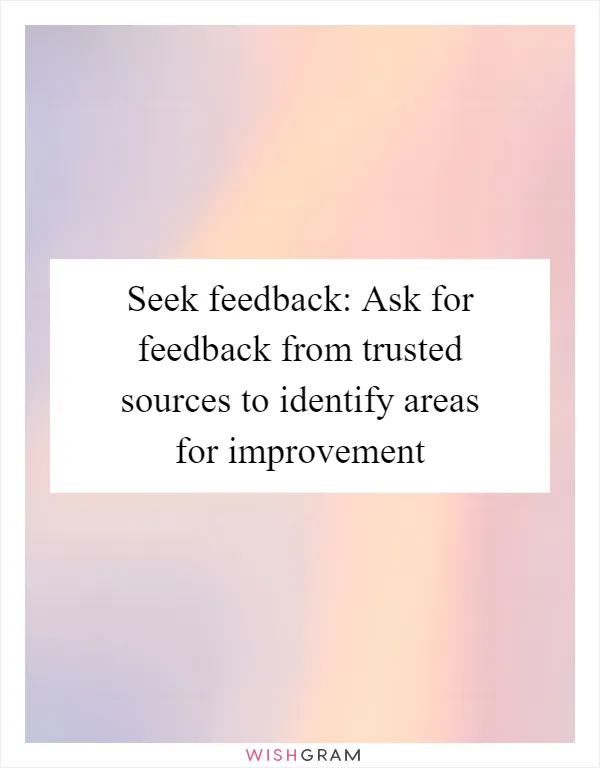Seek feedback: Ask for feedback from trusted sources to identify areas for improvement
Seeking feedback from trusted sources is an essential step towards personal and professional growth. By asking for feedback, we open ourselves up to valuable insights and perspectives that can help us identify areas for improvement. Constructive feedback allows us to gain a better understanding of our strengths and weaknesses, enabling us to make positive changes and reach our full potential.
When seeking feedback, it is crucial to approach trusted sources. These individuals could be mentors, supervisors, colleagues, or even friends who have a good understanding of our abilities and goals. Trusted sources are those who genuinely want to see us succeed and are willing to provide honest and constructive feedback. Their insights can be invaluable in helping us identify blind spots or areas where we may need to develop further.
To ask for feedback effectively, it is important to be specific about what you would like feedback on. Instead of asking for general feedback, focus on specific areas or projects where you would like input. This helps the person providing feedback to give more targeted and meaningful insights. For example, you could ask for feedback on a recent presentation you delivered or a specific skill you are working on improving.
When receiving feedback, it is essential to approach it with an open mind and a willingness to learn. Remember that feedback is not a personal attack but an opportunity for growth. Take the time to listen actively and understand the feedback being given. Avoid becoming defensive or dismissive, as this can hinder your ability to learn and improve. Instead, ask clarifying questions to gain a deeper understanding of the feedback and how you can apply it to your development.
Once you have received feedback, take the time to reflect on it. Consider the validity of the feedback and how it aligns with your own self-assessment. Identify patterns or recurring themes in the feedback you receive, as these can indicate areas that require your attention. It is also helpful to prioritize the feedback based on its potential impact on your growth and development.
After reflecting on the feedback, create an action plan to address the areas for improvement. Break down the feedback into actionable steps that you can take to make positive changes. Set specific goals and timelines to hold yourself accountable. Remember that improvement takes time and effort, so be patient with yourself as you work towards your goals.
Lastly, it is important to express gratitude to those who provide feedback. Acknowledge their time and effort in helping you grow. A simple thank you can go a long way in maintaining strong relationships with your trusted sources. Additionally, consider reciprocating the favor by offering feedback
